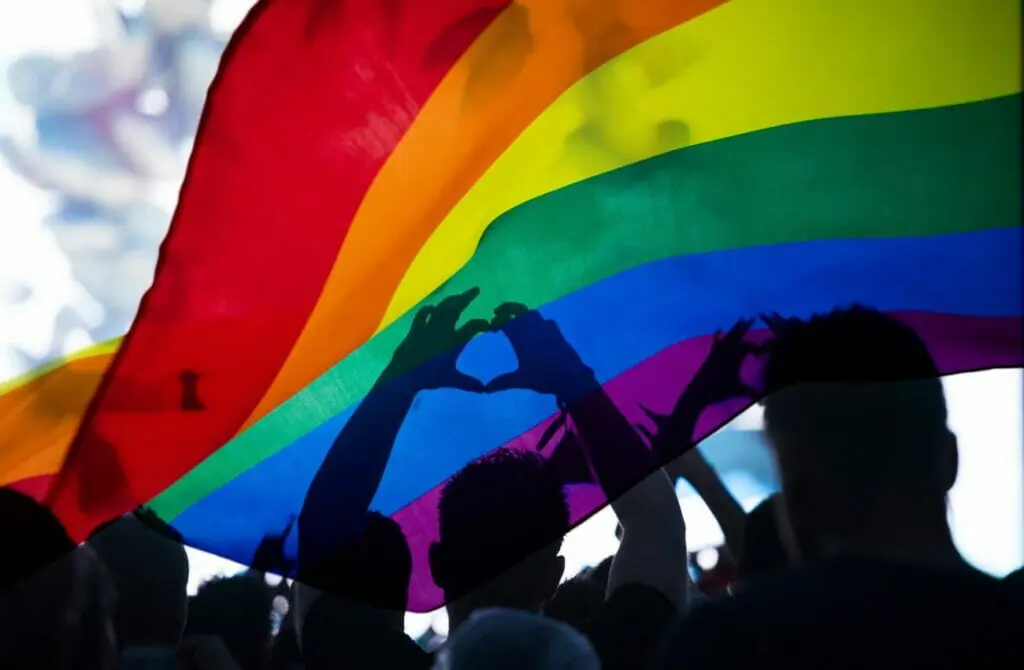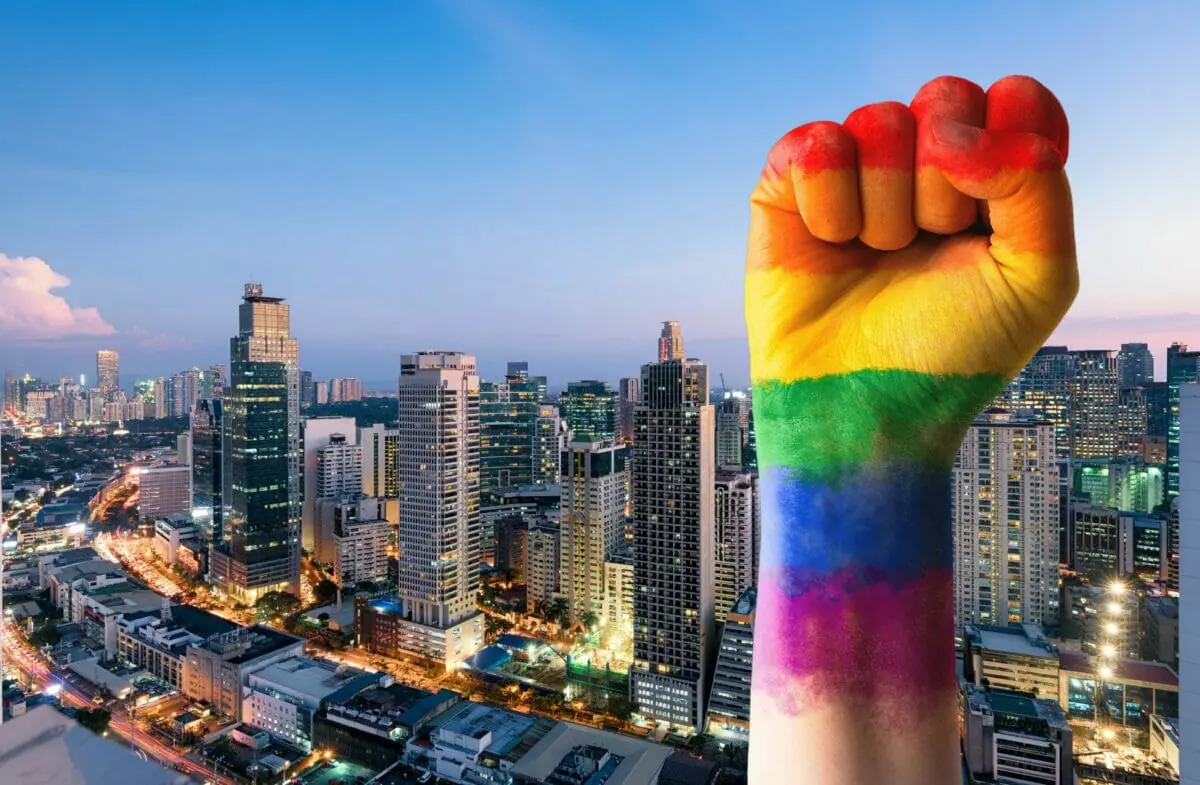LGBT rights in the Philippines have a unique and diverse history, deeply rooted in the cultural fabric of the nation. Pre-colonial Philippine societies held positions of authority and prominence for individuals who identified as LGBTQ+, including cross-dressing males and transgender females taking on powerful roles as spiritual leaders or healers.
Despite this rich heritage, contemporary attitudes and protections for the LGBTQ+ community in the Philippines are still evolving, often posing challenges for both locals and tourists.
When visiting the Philippines, it is important for LGBTQ+ tourists to recognize that their experiences may differ from those of local community members. While the country might seem open and welcoming to some extent, tourists are urged to be cautious and aware of their surroundings, as it varies greatly from place to place, and individual experiences may vary.
To stay informed and protected, visitors should seek out the latest guidance and information from local LGBT advocacy groups and international human rights organizations, as it is essential to remember that situations can change quickly.
For the local LGBTQ+ community, strides are being made to enhance and implement legal protections and to combat homophobia and transphobia. Engaging in these efforts is crucial in order to create a safer and more inclusive environment for everyone.
Tourists can play their part by expressing support and maintaining a respectful and compassionate attitude during their travels. Remember to stay updated, exercise caution, and remain vigilant in embracing and celebrating the rich diversity of LGBTQ+ lives and experiences in the Philippines.
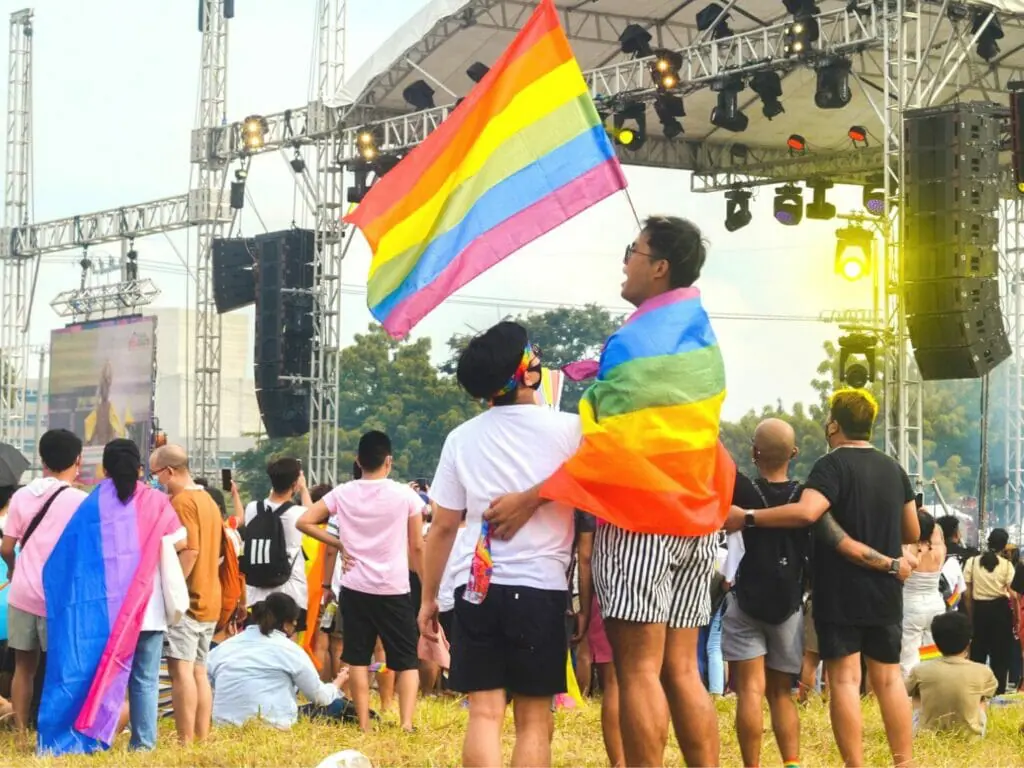
History Of LGBT Rights In The Philippines
The history of LGBT rights in the Philippines dates back to the pre-colonial era, when individuals who exhibited homosexual inclinations usually became babaylan—traditionally feminine shamans of the indigenous Philippine folk religions. These male-to-female shamans, known as asog or sometimes bayoguin or bayoc, played essential roles in their communities, representing the acceptance of gender-crossing practices.
On June 26, 1994, a significant milestone for the local LGBTQIA+ community occurred with the first LGBT Pride March in Manila, Philippines, which also marked the first such march in Asia. This event commemorated the 20th anniversary of the Stonewall Riot and signaled an increasing visibility of LGBTQ+ individuals in the country.
Since then, there have been multiple initiatives to support and uphold the rights of the LGBTQ+ community in the Philippines. Some of these efforts include the establishment of non-profit organizations such as Home for the Golden Gays, which provides a haven for elderly and homeless gay individuals.
Despite the substantial progress in terms of LGBTQ+ visibility and cultural acceptance, foreigners should remain cautious when traveling to the Philippines. It’s essential to stay updated with the current local climate and seek advice from relevant LGBTQ+ advocacy groups before making travel plans. Keep in mind that situations can change rapidly, and information may become outdated. Always remain vigilant and remember that bad actors can exist in any country.
In conclusion, the Philippines has a long history of supporting and accepting LGBTQ+ individuals to some extent. However, it is crucial for both locals and tourists to stay informed about the current situation and take any necessary steps to protect themselves. By maintaining a keen awareness and adhering to the guidelines from reliable sources and organizations, one can enjoy an exciting, inclusive, and safe experience in the Philippines.
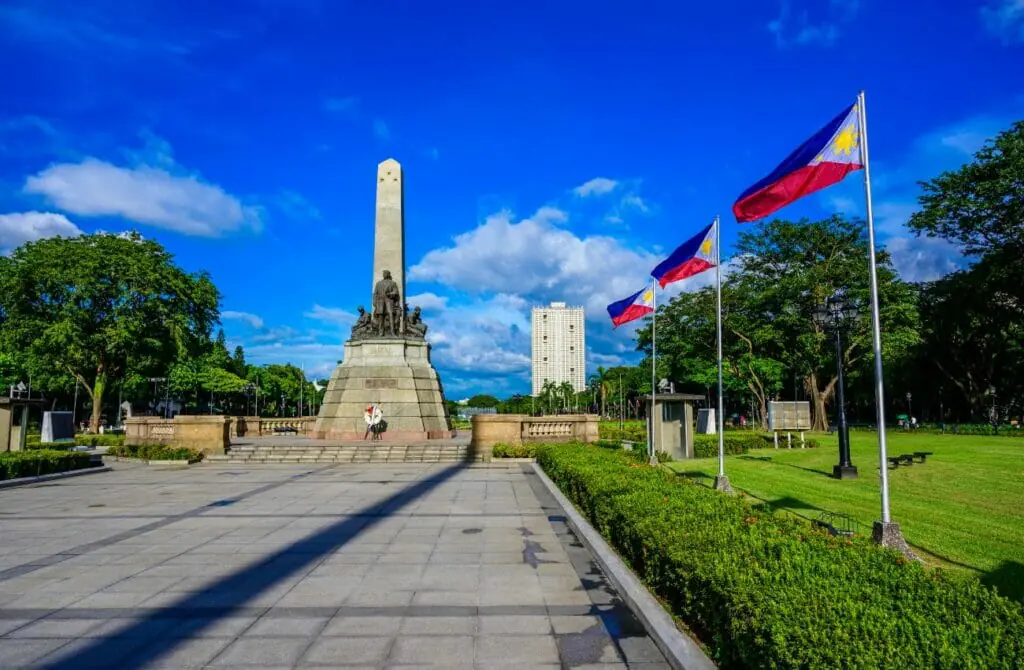
The LGBT Legal Situation In The Philippines
Great news! Homosexuality is legal in the Philippines. However, the legal landscape for LGBTQ+ individuals in the country still lacks certain protections. As of now, gay marriage remains unrecognized, and changing one’s gender is illegal. It’s important to remember that the situation can change, and it’s always wise to remain vigilant and seek current advice before traveling.
In terms of discrimination, the Philippines offers some protections for its LGBTQ+ citizens. Discrimination based on sexual orientation is illegal in some contexts, and employment discrimination is prohibited on the grounds of sexual orientation. Housing discrimination is also illegal, covering both sexual orientation and gender identity. Keep in mind that situations vary, and bad actors exist in every country, so stay cautious and be aware of your surroundings.
For both locals and tourists, life in the Philippines can be quite different. While the country is recognized as Southeast Asia’s most gay-friendly country, there is no specific law against LGBT discrimination. A study by the Philippine LGBT Chamber of Commerce noted that none of the 52 Philippine-based companies they surveyed in 2018 had policies against discrimination based on sexual orientation, gender identity, and expression (SOGIE).
To protect yourself and ensure a safe and enjoyable experience, it’s important to connect with local LGBTQ+ advocacy groups, such as the mentioned Philippine LGBT Chamber of Commerce, which can provide invaluable support and guidance. By doing so, you’ll have access to an invaluable network of information, resources, and allies.
Remember, the legal and social situation in the Philippines may be different from what you’re used to, but that doesn’t mean you can’t have an amazing time exploring this beautiful country and its diverse culture. Stay excited and embrace the adventure while always taking necessary precautions and staying informed on the current landscape of LGBTQ+ rights in the country.
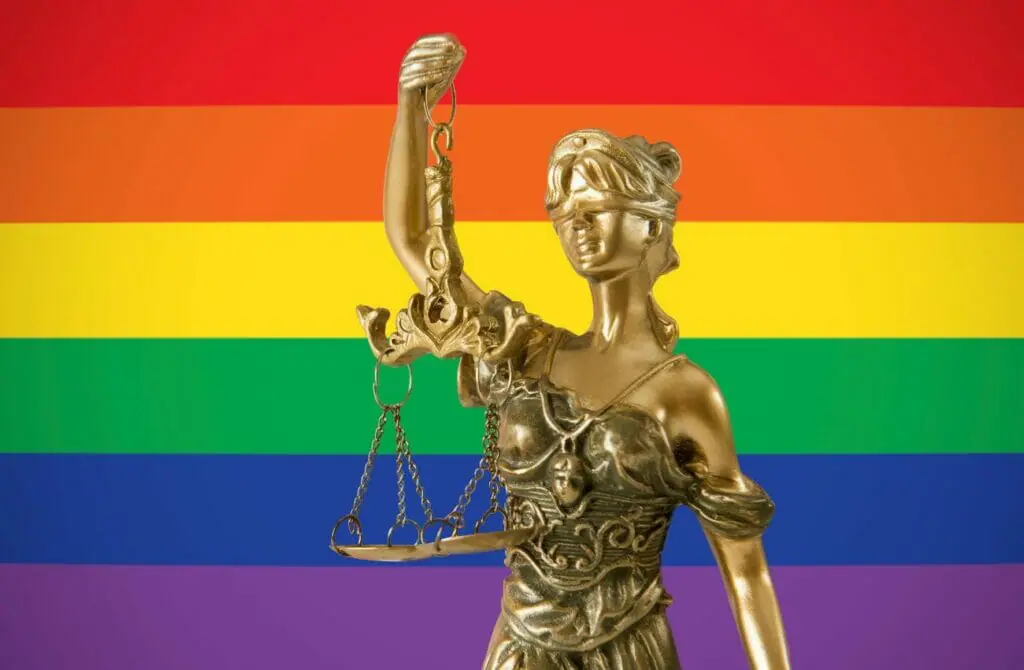

The LGBT Social Situation In The Philippines
The Philippines is known for its warm and welcoming culture, which extends to its LGBTQ+ community. The country ranks highest in the region for LGBT social acceptance according to a 2021 global index. However, it’s important for both locals and tourists alike to be aware that the legal landscape may not always align with the prevailing inclusive attitudes.
While the Philippine society is generally accepting of the LGBTQ+ community, there are still steps that can be taken to protect oneself. Staying informed about the local laws and regulations, as well as being aware of social cues and norms, are essential while navigating the social landscape. Always remain vigilant for potential bad actors, even in seemingly accepting environments, as these individuals can exist in any country.
It’s important for travelers and residents to stay up-to-date on the latest information regarding LGBTQ+ rights, as situations can change quickly. Seeking current advice before traveling or engaging in certain activities is a must to ensure both safety and respect for local customs.
In the spirited pursuit of rights and acceptance, local LGBT advocacy groups play a crucial role in the Philippines. Some prominent organizations include the Philippine LGBT Chambers of Commerce, Bahaghari, and Rainbow Rights Philippines. These groups work tirelessly to build support for the community, foster an inclusive environment, and push for progressive legislation.
By being informed, cautious, and respectful, the LGBTQ+ community in the Philippines can continue to thrive and enjoy the exciting social landscape the country has to offer. Remember to always be aware of your surroundings, seek current information, and support local advocacy groups in the quest for greater inclusivity.
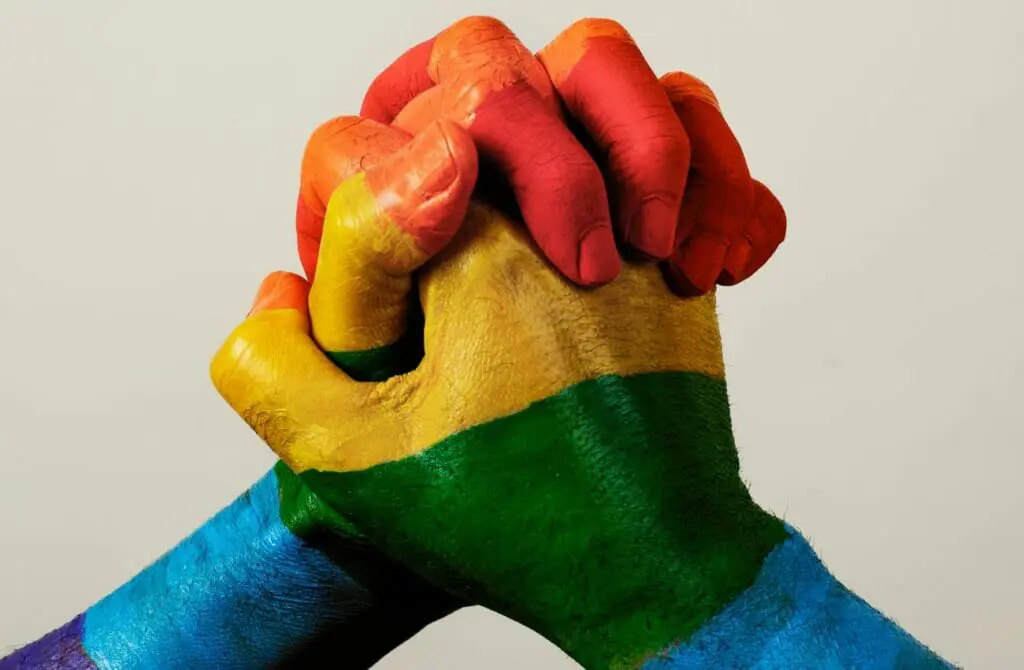
Trans Rights In The Philippines
The state of trans rights in the Philippines is a mixed picture. While progress has been made in certain areas, such as the growing visibility and acceptance of transgender individuals in Philippine society, there is still a long way to go in terms of legal protections and social acceptance for trans individuals.
Legal Protection and Discrimination
There is currently no national legislation in the Philippines that specifically protects LGBTQ individuals, including trans individuals, from discrimination. However, the Sexual Orientation and Gender Identity and Expression (SOGIE) Bill aims to address this issue by imposing fines or jail time on those who discriminate against LGBTQ individuals.
Safety and Vigilance
It is crucial for both locals and tourists to be aware of their surroundings and remain vigilant about their safety. While many people in the Philippines are LGBTQ-friendly and accepting, others may hold prejudiced views or even engage in discriminatory or violent behavior. Situations can change rapidly, so it is always best to seek up-to-date information and advice before traveling.
Advocacy Groups and Support
There are several organizations in the Philippines that actively promote LGBTQ rights, including the rights of trans individuals. Amnesty Philippines, for example, has worked on a variety of LGBTQ-related campaigns and initiatives with the goal of ending homophobia and transphobia and ensuring that everyone can express themselves freely.
Moving Forward: Positive Steps and Remaining Challenges
In order to improve the situation for trans individuals in the Philippines, it is essential to raise awareness, foster understanding, and encourage the adoption of non-discrimination policies and legislation. This can be done through education, community outreach, and continued advocacy on behalf of trans rights. Additionally, supporting existing LGBTQ advocacy groups and their efforts to promote a safer and more inclusive environment for all is essential.
Remember, it is crucial to stay informed about the current situation in the Philippines and take necessary precautions to protect yourself and others. Always bear in mind that situations can change fast, and it is important to seek current advice and support from trustworthy sources. Together, we can work towards a brighter future where all individuals, regardless of their gender identity, can live their lives freely and authentically.


The Future For The Queer Community In The Philippines
The future of LGBT rights in the Philippines looks promising, with an increasing number of advocacy groups and activists working towards equal rights and protections for all. The country has seen some progress in recent years, such as the introduction of civil union bills in the Philippine Congress, which aim to recognize and provide benefits and protections to same-sex couples.
Despite these positive steps, LGBT locals and tourists may still experience discrimination and prejudice from time to time. To protect oneself, it is important to stay informed about local laws and the current situation regarding LGBT rights. Being aware of local customs and respecting cultural differences can also help minimize potential conflicts.
While there is momentum in the right direction, it is crucial for both locals and tourists to remain vigilant and cautious. Situations can change quickly, and information can become outdated. Therefore, always seek up-to-date advice before traveling or engaging in any activities that may be affected by the status of LGBT rights in the Philippines.
There are several LGBT advocacy groups in the Philippines that work tirelessly to improve the lives and rights of community members. By supporting organizations like Bahaghari Philippines, the local community and international visitors can contribute to the ongoing efforts towards equality and acceptance for all.
In conclusion, the future of LGBT rights in the Philippines is bright. With continued advocacy and growing support from both locals and the international community, the country is on a path toward greater equality and protection for all its residents.
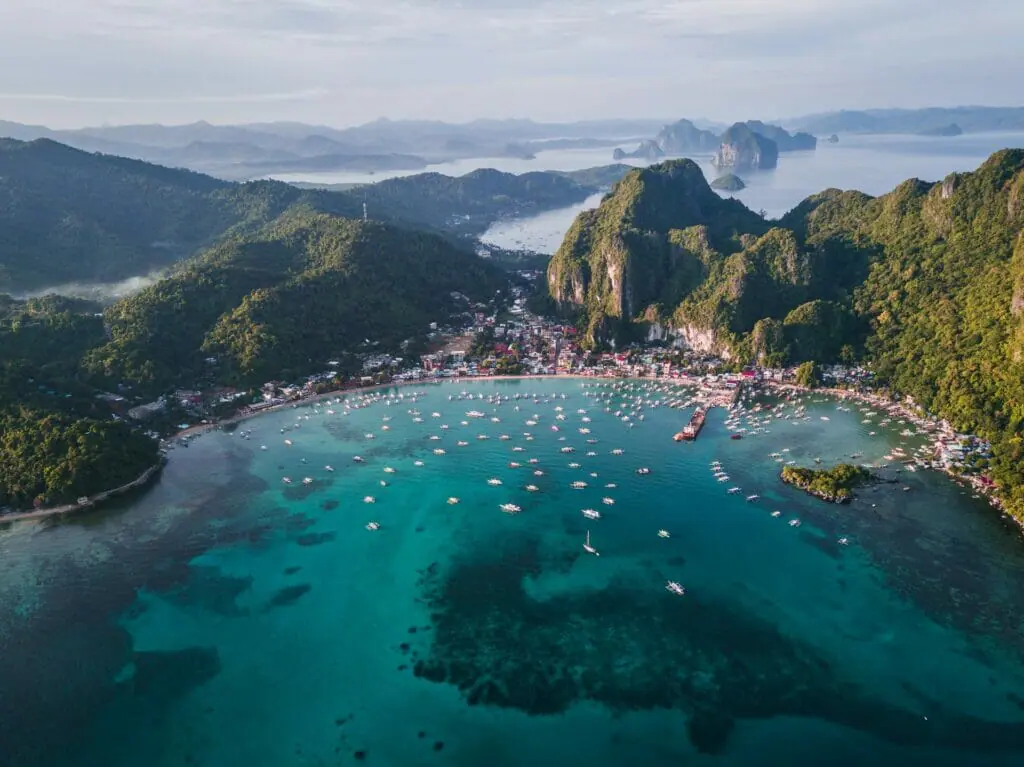
Protect Yourself While Travelling In Gay Philippines
LGBT rights in the Philippines have seen significant progress in recent years, but it’s essential to stay informed and exercise caution. This is true for both local individuals and tourists visiting the country. Excitingly, cities like Quezon City have implemented ordinances that protect LGBTQIA+ community members from discrimination in their residences, workplaces, and educational institutions.
However, it’s necessary to remember that situations can change quickly, and information can become outdated. So, always seek current advice before traveling or making any decisions related to your rights and protections. Stay vigilant, as there may be bad actors in any country, regardless of the overall positive developments.
To better protect yourself, consider taking the following precautionary steps:
Connect with local LGBTQIA+ advocacy groups, such as Amnesty Philippines or other community-supportive organizations. They can provide valuable information, resources, and support.
Be mindful of cultural and social attitudes and exercise discretion when expressing your identity in public, especially if you’re unfamiliar with the local environment.
Stay informed about the legal rights and protections for the LGBTQIA+ community. Familiarize yourself with laws and penalties related to discriminatory acts.
Make use of online resources, such as Being LGBT in Asia: The Philippine Country Report, that provide extensive details on LGBT rights in the Philippines.
Lastly, never forget the importance of remaining vigilant and informed in the face of evolving situations and potential challenges. Stay connected to relevant sources and advocacy groups to ensure you’re always up-to-date and well-equipped to navigate the unique challenges faced by the LGBTQIA+ community in the Philippines. Your excitement and enthusiasm for progress should always be accompanied by a commitment to safety, awareness, and support.
